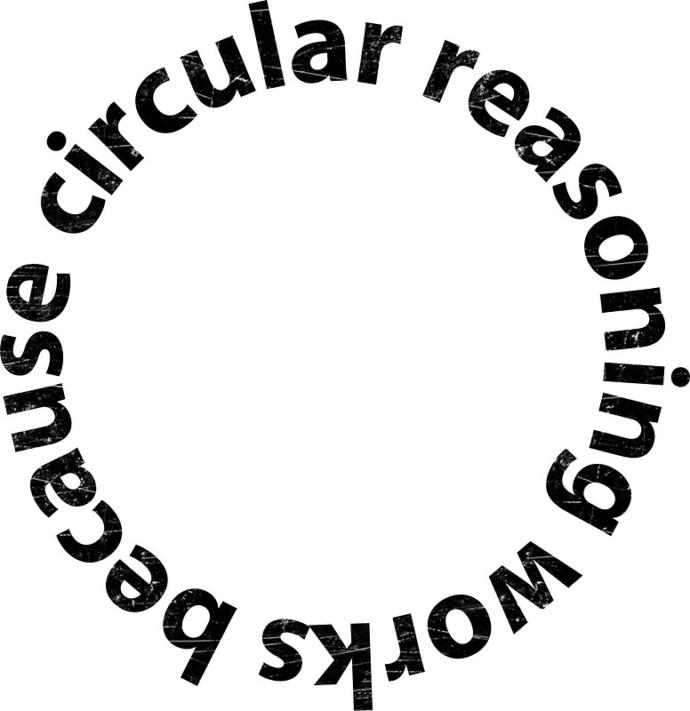@lord_chilled and I were talking about this the other day. Rather than consistently having to write in brief responses I thought it would be best to continue with myTakes discussing the arguments for god/s. This is another form of the teleological argument, and will be my second myTake covering it.
Admittedly this argument never convinced me, not even when I was a theist. It was so blatantly obvious to me that it was fallacious that I never argued it, but the more I talk to people the more I realize that it is convincing to a decent number of people. Hopefully this Take will elaborate why it never convinced me.
What is it?
The Anthropic Principle has also been referred to as the Just Right argument, or the Fine Tuning argument. The basic claim of every version of this argument is that the Universe is just right, or finely tuned for human life. This necessitates an intelligent creator, and could not be the result of natural phenomena. Frequently it will be formed as a tautology:
"Creation requires a creator! Intelligent design requires a designer!"
These tautologies are the most frequent form of this argument that I hear. This is problematic. It's problematic because it smuggles in the idea that they're attempting to demonstrate into the premise. This is called begging the question and it is a logical fallacy. I think that often this isn't known, but implying that the universe is created, or designed needs to be demonstrated, and as of yet this has not been done. Once this is pointed theists may say, ok, well you're right. It's more probable though that the universe is created than not created.

What is the probability?
As stated before, some people will then attempt to give an example of how improbable our universe or life forming would be on a naturalistic explanation, "it’s so staggeringly unlikely that Earth would be just the right size, distance from the sun, elemental composition, etc." Often some of the probabilities given are 10^400. I remember in high school learning about this argument, and think it was portrayed as, "Imagine the odds of winning the lottery. This is an incredibly low probability right? Imagine winning two in a row, you may think it likely that somebody has designed these circumstances, there's no way you won twice in a row just by chance. Well, the odds of life coming about in this universe would be like winning the lottery 100 times in a row! This obviously did not happen by chance."
Problems:
1.) One of the first problems that comes to mind when somebody says this is what the probability of god is. To say that one proposition is more likely than another you need to have the odds of both to compare. Ie. I have two dice. One die is three sided and is numbered 1-3, and the other die is two sided and numbered 1 and 2. If I wanted to determine which die was more likely to allow me to roll a 1I would compare the probability of the two. In this case the probability would be .33 and .5 thus it is more probable that I will roll a 1 on the second die. In this case even presupposing that the number 10^400 is correct we have no known probability of a god existing and wanting to create a universe with life. Thus, even if the probability of life existing is .0000...01 we would never be able to say it was more likely that this universe came into existence under the god hypothesis because we simply don't have that probability.
2.) There is another problem with these calculations in that we have no idea what the necessary preconditions for life are. We do know in what sort of conditions that we can live, but we aren't the only example of life, and we don't know that if the conditions of the universe were different that we wouldn't have evolved differently. For example thermophiles can live in incredibly different circumstances than we could.
3.) I briefly touched on this with the last point, but another problem with this argument is that it is working backwards. We know that organisms adapt to their environment. Imagine that one day a rain puddle gained sentience. It may look at the hole it's in and determine, "Oh look, this hole is made just for me. It's so incredibly improbable that this hole could fit me just perfectly unless it was made for me!" The problem that you hopefully note with this scenario is that in fact the hole was not designed for the water, rather the water filled up and took it's shape based on the hole.
Anyways as always thanks! Input appreciated.
 Holidays
Holidays  Girl's Behavior
Girl's Behavior  Guy's Behavior
Guy's Behavior  Flirting
Flirting  Dating
Dating  Relationships
Relationships  Fashion & Beauty
Fashion & Beauty  Health & Fitness
Health & Fitness  Marriage & Weddings
Marriage & Weddings  Shopping & Gifts
Shopping & Gifts  Technology & Internet
Technology & Internet  Break Up & Divorce
Break Up & Divorce  Education & Career
Education & Career  Entertainment & Arts
Entertainment & Arts  Family & Friends
Family & Friends  Food & Beverage
Food & Beverage  Hobbies & Leisure
Hobbies & Leisure  Other
Other  Religion & Spirituality
Religion & Spirituality  Society & Politics
Society & Politics  Sports
Sports  Travel
Travel  Trending & News
Trending & News
Most Helpful Opinions